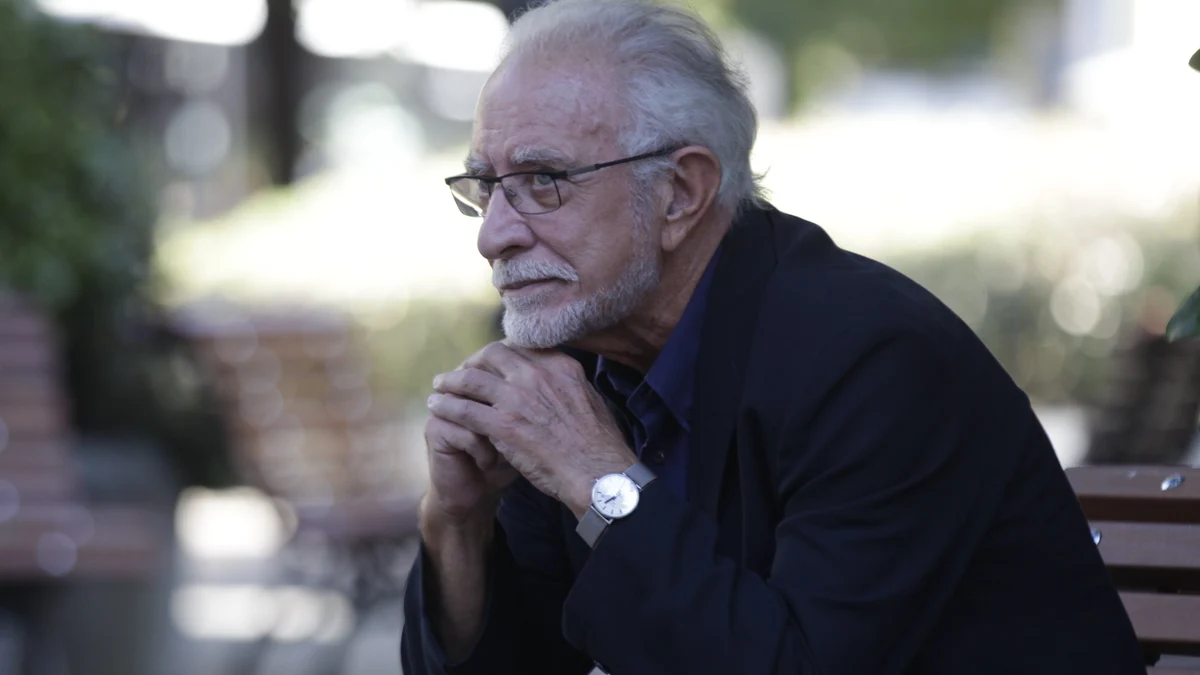LOS LUNAS, N.M. (KRQE) – In DWI cases, the state has two chances to hold drunk drivers accountable. There are criminal penalties in court, and New Mexico can take away your driver’s license. KRQE Investigates revealed what happens when officers don’t show up to those hearings and drivers get a free pass. KRQE Investigates also uncovered another problem involving a law enforcement agency going rogue.
KRQE Investigates
Suspected ‘mastermind’ behind shootings at politicians’ homes heads to trial
APD lieutenant named in DWI scandal accused of abusing child in 2016
‘This is not right’: Albuquerque police investigating HOA president’s paychecks
DWI suspects keeping driver licenses due to officer ‘no shows’
In October 2022, three separate cars were hit on a dark road in Valencia County. Witnesses said the driver who caused the crash was going the wrong direction. “He smells of alcohol, like he’s completely drunk off his…” a witness is heard explaining what happened to a Valencia County deputy on scene.
“He hit me, hit her, still tried taking off and everything,” one witness said. According to records obtained by KRQE, Valencia County Deputy Brandon Lujan took the report. “I need you to be honest with me, bro, I’m smelling an odor of alcohol,” Deputy Lujan told the driver. “How much have you had to drink tonight?”
The driver, later identified as Carlos Baca, admitted to drinking before getting behind the wheel. He told the deputy he had, “Couple of beers.”
The deputy tried to have Baca do field sobriety tests, including having Baca walk a straight line. “I’m f******* bro,” Baca told the deputy. “Okay, so what are you telling me?” The deputy asked. “You don’t want to do the tests anymore?”
Deputy Lujan stopped the field sobriety tests and Baca was arrested, and charged with aggravated DWI. The deputy’s report notes Baca’s breath alcohol level was three times the legal limit, recorded as 0.24.
License revocation hearing
Along with the criminal process for DWI, under New Mexico’s Implied Consent Act, Baca’s driver’s license should have been revoked. But drivers can fight that by requesting an administrative license revocation hearing to try and convince a hearing officer there isn’t probable cause to revoke their license.
The arresting officer in a DWI case can argue on behalf of MVD for the license to be revoked. In this case, Baca did request a license hearing. And what happened there is shocking.
An audio record of that license revocation hearing from December 2022 reveals Thomas Clear III is on the call as Baca’s defense attorney. “Good morning, Thomas J. Clear III, on behalf of the motorist, Carlos Baca, who is at work right now,” Clear is heard on the recording.
Clear is now under investigation by the FBI, accused of working with police officers to get DWI cases dismissed. While there’s no proof that happened in this case, something strange did happen.
KRQE News 13 played the audio recording of Baca’s license revocation hearing for Linda Atkinson, Executive Director of the DWI Resource Center. The deputy who made the arrest was on the call, step one in ensuring the accused drunk driver would have his license revoked.
Below is a transcript from a portion of Carlos Baca’s license revocation hearing:
Hearing Officer: The breath test results are partially illegible. Do you have a copy, a clear copy you can email this morning, Deputy Lujan?
Deputy Lujan: No, I don’t, Your Honor. And I just want to state for the record, I’m going to refuse to testify this morning.
Hearing Officer: Oh, okay. Can you elaborate, or -?
Deputy Lujan: I’m just refusing to testify.
Hearing Officer: Well, you’ve been subpoenaed. However, I don’t have contempt powers under the Implied Consent Act. And I will note that it’s – a revocation is rescinded because you refused to testify.
Deputy Lujan: Okay.
Hearing Officer: Anything further, Mr.. Clear?
Clear: Uh, no. Be safe out there, deputy. I know your job is a dangerous one, and we appreciate it.
Deputy: Thank you, I appreciate you.
The deputy’s refusal to testify means the accused drunk driver will automatically keep his driver’s license, allowing him to stay behind the wheel. Atkinson was shocked to hear the outcome of the license revocation hearing.
“‘I know you have a dangerous job,’ You ass,” said Atkinson in reaction to the audio recording. “He just let an impaired driver go, so it makes it more dangerous, don’t you think? Unbelievable. Unbelievable. It gets my ire up to hear something like that.”
Is it acceptable for a law enforcement officer to refuse to testify?
“They’re expected to comply with the subpoena,” explained Chief Hearing Officer, Brian VanDenzen. “There is no good justification to ignore a subpoena and to refuse to testify or cooperate.”
VanDenzen is the Chief Hearing Officer for the state agency that handles license revocation hearings. “The Implied Consent Act hearings and the license revocation process save lives,” VanDenzen told KRQE.
“So people will get on ignition interlock sooner, usually, than what the court process takes to get an outcome in the court process,” VanDenzen explained. “And of course, when people are on interlocks, that improves public safety for everyone else on the roadways.”
For the process to work though, law enforcement officers must show up and testify to the facts of their arrest. Officer attendance issues are prevalent statewide, according to data from the Administrative Hearing Office.
But for an officer to show up to the hearing, and then refuse to testify, that’s another problem. “If you show up at a hearing and you decline to testify, that might have been the case where you could have made a difference,” said VanDenzen. “And we’ll never know the answer to that.”
However, consequences for a refusal to testify are up to individual law enforcement agencies, VanDenzen explained. “We’re not a criminal court. So my hearing officers, unlike maybe a judge on the criminal bench, doesn’t have contempt powers or a way to enforce a subpoena,” said VanDenzen.
“So when that happens, we have to explain to the officer, ‘Look, your testimony is critical to MVD being able to prove this case or not,'” VanDenzen added. “If you decline to testify, there may not be enough evidence to make a ruling on this record. And it’s sort of up to them at that point.”
Was the deputy disciplined for not testifying?
KRQE Investigates reached out to the Valencia County Sheriff about this case. “We originally agreed to allow that to happen,” explained Valencia County Sheriff, Denise Vigil. She explained that she originally supported her deputies refusing to testify at license revocation hearings.
Sheriff Vigil said she was under the impression it might hurt their DWI criminal case if something an officer said at an administrative hearing could be held against them in court. Today, the Sheriff admits that hasn’t happened.
“We have since remedied that issue and basically, let all of our deputies know that MVD hearings are very important,” Sheriff Vigil told KRQE.
“We have had a meeting this morning, and we sent out a directive that everyone is fully aware that these hearings are very important, and that they will show up to them if they’re subpoenaed, and they will give testimony,” Sheriff Vigil added.
Case dismissed
Baca’s aggravated DWI case was ultimately dismissed in court due to “insufficient evidence.” And without the deputy’s testimony, he was also allowed to keep all of his driving privileges.
Twice, the state had chances to hold an accused drunk driver accountable. Twice, there were no consequences.
It’s something Sheriff Vigil now says won’t happen again under her watch. “We should be forthcoming in giving them everything that is required for them to make their decision, based off the testimony and the evidence presented,” said Sheriff Vigil.
When asked what brought about her changed stance about deputies testifying at license hearings, Sheriff Vigil replied, “You did. I mean, you know, you brought it to our attention that this occurred.”
“With everything that’s been looked at over the last couple of days, I mean, our goal is basically to really educate further and prepare this traffic unit to do the best that they can when they are dealing with DWI or any other traffic infractions that could cause bodily harm,” explained Vigil.
The Valencia County Sheriff said Deputy Lujan was not disciplined in this case because she doesn’t believe he acted in bad faith. Going forward, however, she said there will be consequences if a deputy refuses to testify at a license revocation hearing.
Meanwhile, the state’s Administrative Hearing Office is working to educate more law enforcement agencies on the importance of their testimony and attendance at license revocation hearings. VanDenzen said the AHO is working with a New Mexico State Police Lieutenant to train law enforcement officers around the state so they feel more comfortable testifying in those administrative hearings.























![Floodlights Share New Single ‘Can You Feel It’ Alongside Signing To [PIAS] Recordings](https://media.themusic.com.au/images/standard/Festivals/bangers-on-the-green/230618-bangasonthegreen-ballina-thejamesadams-8599.990x660.jpg)






